
|

The following is George's "recommended reading list" pulled
from his own library. Each month we will feature a book that recently
joined George's favorites list.
Click on any book to order now at 
|

 |
Basic Economics
A
Citizen's Guide to the Economy
by
Thomas Sowell |
Thomas Sowell is widely known as a masterly writer
on the intricacies of race and culture around the globe. His recent
autobiography offers a fascinating vista into his amazing life battling
the forces of political correctness on issues of race. But Sowell
began as a superb economic theorist, bringing to light the foundational
principles of supply side economics in Says Law ("Supply
creates its own demand") and Knowledge and Decisions. Now
he has summed up a lifetime of economic wisdom in this definitive
text, Basic Economics: A Citizen's Guide to the Economy.
He offers pithy and trenchant accounts of a wide range of issues,
from the perversity of rent controls and the wastefulness of recycling
to the irrelevance of sex and race in income data and the true role
of government in economy.
Basic Economics is our book of the month
for January 2001
--GG
Order
the Book! >>
|
|
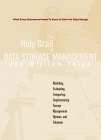 The
Holy Grail of Data Storage Management The
Holy Grail of Data Storage Management
What
Every Enterprise Needs to Know to Solve Its Data Deluge
by
Jon William Toigo
An
excellent primer on network storage-perhaps the only in depth, book
length treatment of the subject. The book does, however, suffer
from conventional thinking. In particular, Toigo buys into the flawed
notion that the number one reason for SAN architectures is to save
network bandwidth.
Recommended as good background reading on enterprise storage.
|
|
 |
Collective
Electrodynamics
Quantum
Foundations of Electromagnetism
by
Carver A. Mead |
The book of the month (and perhaps of the decade; time will tell)
is Collective Electrodynamics by Carver Mead, written is
his copious free time while launching a revolution in the camera
business with the Foveon imager. Mead's climactic speech at Telecosm,
ending with a prolonged standing ovation, focused less on Foveon's
amazing new chip and its impact on cameras than on his new book
and its promise of a revolution in the physics of the electromagnetic
spectrum. Some mathematics afflicts about two-thirds of the chapters,
but the rest are readable and riveting.
Order
the Book! >>
|
|
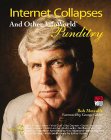
Internet Collapses
And
Other InfoWorld Punditry
by
Bob Metcalfe
A unique American inventor and entrepreneur, famous as the
inventor of the Ethernet, Bob Metcalfe's career in business has
been such a swashbuckling success, that I have always been baffled
at why on earth he should wish to join us humble scriveners in the
world of journalism.
Here, in this incandescent collection of his columns and other
writings, is his triumphant answer. He is simply the world's best
writer on technology. Other try hard. From the telecommunications
side, Bob Lucky, for example, offers more Olympian prose and more
delicate humor. Nicholas Negroponte weaves more elegant and sustained
analogies. Esther Dyson gives a more acute account of the unending
ramification of computer software and networks in communities and
societies. We all ache to please our readers. We labor to master
the technologies, But Metcalf is already there, the master of the
networks that engage us all, and he blows sulphurous gas into the
wounds we incurred in efforts to lean his technology by also writing
more crisply, authoritatively, knowledgeably, and explosively than
any of us.
[Click
here, or on the book, to order from Amazon.com]
|


|

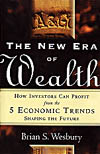 The
New Era of Wealth The
New Era of Wealth
How
Investors Can Profit from the 5 Economic Trends Shaping the Future
by
Brian S. Wesbury
The
first book with a Telecosm List, a supply-side tilt, and a Greenspan
critique, Brian Wesbury's pithy tome castigates the prevailing medianomics
and offers a felicitous guide for investing in the new economy.
—GG

|
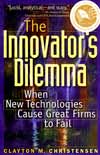 The
Innovator's Dilemma The
Innovator's Dilemma
When New Technologies Cause Great Firms to
Fail
By Clayton M. Christensen
"The
most profound and useful business book ever written about innovation,
it catapults its softspoken author abruptly into the class of Burnham
and Drucker."
—George Gilder, October 1998 GTR

|
 Only
the Paranoid Survive Only
the Paranoid Survive
The Threat & Promise of Strategic Inflection
Points
By Andrew S. Grove
"As
a strategic fact, defining the conditions of the business and the
opportunities of the era, broadband is now. This is a fundamental
paradigm shift-an inflection point like those described in Andy Grove's
riveting new book, Only the Paranoid Survive."
—George Gilder, August 1996 GTR

|
 Adventures
of a Bystander (Trailblazers, Rediscovering the Pioneers of Business) Adventures
of a Bystander (Trailblazers, Rediscovering the Pioneers of Business)
By Peter F. Drucker


|
 The
Effective Executive The
Effective Executive
By Peter F. Drucker


|
|
 Being
Digital Being
Digital
By Nicholas Negroponte

|
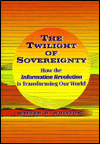 The
Twilight of Sovereignty The
Twilight of Sovereignty
How the Information Revolution is Transforming
Our World
by Walter B. Wriston

|
 The
End of Money and the Struggle for Financial Privacy The
End of Money and the Struggle for Financial Privacy
by Richard W. Rahn
Former
Chief Economist of the National Chamber of Commerce, Richard Rahn
has peered deeply into the heated caldron of money, encryption, privacy,
bandwith and bureaucracy and emerged with a stark and stormy vision
of the future. This crisply written text foresees a concussive collision
of new technologies and old institutions, such as banks and nations,
debts and taxes, and a new world of web commerce on the other side.

|
 Optical
Networks Optical
Networks
by Rajiv Ramaswami and Kumar N. Sivarajan
This
book is a lucid and practical exposition of the optics state of
the art by two protege's of Paul Green. Skip the denser math if
you want and you still can deepen your knowledge of this incandescent
field. You can also expose yourself to the thinking of Rajiv Ramaswami,
who is moving to Silicon Valley to guide an exciting startup in
optical switching, called XRos, into the frontiers of the telecosm.

|
 "Listen
to the technology" —Carver
Mead "Listen
to the technology" —Carver
Mead |
 Feynman
and Computation Feynman
and Computation
Exploring the Limits of Computers
Edited by Anthony J.G. Hey
(not to be confused with Feynman Lectures on Computation)
This book
contains three seminal lectures by Carver Mead, who co-taught the
course with Feynman, and includes many vivid recollections of and
by the world's greatest physicist in interplay with the world's leading
computer scientists.
"For a successful technology, reality must take precedence over
public relations, for Nature cannot be fooled."
—Feynman on the Challenger disaster

|
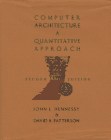 Computer
Architecture Computer
Architecture
A Quantitative Approach
By David A. Patterson & John L. Hennessy
A leader
in the debate over the structure of tomorrow's computers, "David
Patterson explained how many of the problems with current computer
architecture could give way to an intelligent RAM architecture.
He favors use of parallel vector processors programmable through
the means familiar in vector Cray supercomputers."
—George Gilder, October 1997 GTR

|
|
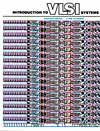 Introduction
to VLSI Systems Introduction
to VLSI Systems
By Carver Mead & Lynn Conway

|
 Feynman
Lectures on Physics Feynman
Lectures on Physics
By Richard P. Feynman

|
|
 Analog
VLSI and Neural Systems Analog
VLSI and Neural Systems
By Carver Mead

|
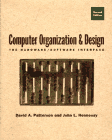 Computer
Organization and Design Computer
Organization and Design
The Hardware/Software Interface
By David A. Patterson & John L. Hennessy

|
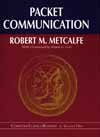 Packet
Communication Packet
Communication
By Robert M. Metcalfe
Bob Metcalfe invented ethernet and was a founder of 3Com. His 1973
doctoral dissertation, Packet Communication, is a classic text in
the development of the communications protocols at the core of the
Telecosm.
"In the new paradigm, the Moore's Law advance of MIPS and bits
gives way to the Metcalfe's Law explosion of bandwidth." —George
Gilder, August 1996 GTR

|
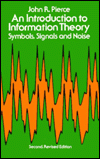 An
Introduction to Information Theory An
Introduction to Information Theory
Symbols, Signals and Noise
By John R. Pierce
"Shannon's work is shrouded in hardcore math and the explanation
can be skipped if you want. But it is worth getting a glimpse of
his vision. It is most clearly expounded by his leading apostle,
John R. Pierce of Bell Laboratories, in a book called An Introduction
to Information Theory."
—George Gilder, June 1998 GTR

|
|
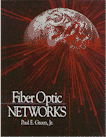 Fiber
Optic Networks Fiber
Optic Networks
By Paul E. Green
"the leading text on fiber networks"
—George Gilder, February 1997 GTR

|
 The
Age of Spiritual Machines The
Age of Spiritual Machines
When Computers Exceed Human Intelligence
By
Ray Kurzweil

|
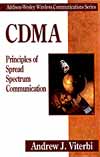 CDMA
Principles of Spread Spectrum Communication CDMA
Principles of Spread Spectrum Communication
By Andrew J. Viterbi
Viterbi presents the mathematical bridge between Shannon's theories
and today's most advanced wireless technology.
"For many years, few noticed the full significance of [Shannon's]
baffling message. Andrew Viterbi, the famed author of the Viterbi
algorithm, now at Qualcomm, was one of the few. With Jacobs and Gilhousen,
they set out to fulfill the Shannon mandate. In the Telecosm today,
physics, optics, engineering, signals, and noise all are now beginning
to whirl centrifugally in Shannon's hyperspace. Just as Wavelength
Division Multiplexing is the wireline expression of Shannon's vision,
CDMA is the wireless form of "wide and weak."
—George Gilder, June 1998 GTR

|
 Claude
Elwood Shannon Claude
Elwood Shannon
Collected Papers
By Claude E. Shannon
"As early as 1949, Claude Shannon, the inventor of information
theory, defined the crucial tradeoffs of a regime of bandwidth abundance.
Bandwidth, he showed, can substitute both for switching and for
power. The new paradigm requires that successful companies of the
new era pursue this crucial trade off among the emerging technologies
of sand and glass and air."
—George Gilder, July 1996 GTR
"The great astronomer and physicist Kepler wrote: "I cherish
more than anything else the Analogies.They know all the secrets
of nature." For the Microcosm, the model was to move to the center
of the sphere, at the atomic level, where power was concentrated.
With an uncanny analogy of communications to multi-dimensional geometry,
however, Claude Shannon in 1948 supplied a new spherical analogy
for the Telecosm. An MIT professor with close ties to Bell Laboratories,
he developed information theory to gauge the potential capacity
of any communications channel in the presence of noise. This work
took the theory of the Telecosm from the center of the sphere, where
power was unlimited and bandwidth scarce, to the surface of the
sphere, where the results were weirdly wide and weak and counterintuitive."
—George Gilder, June 1998 GTR

|
 |
|



